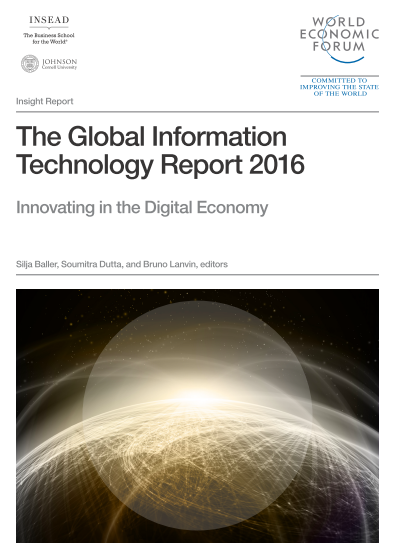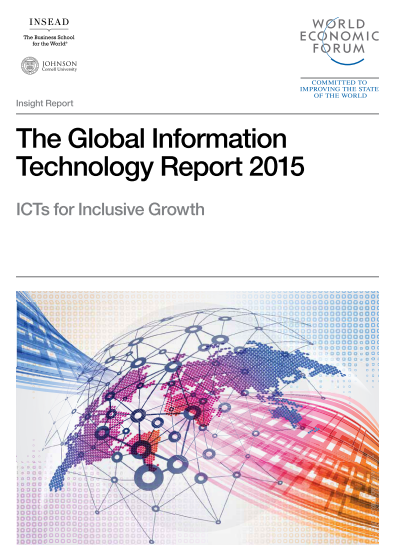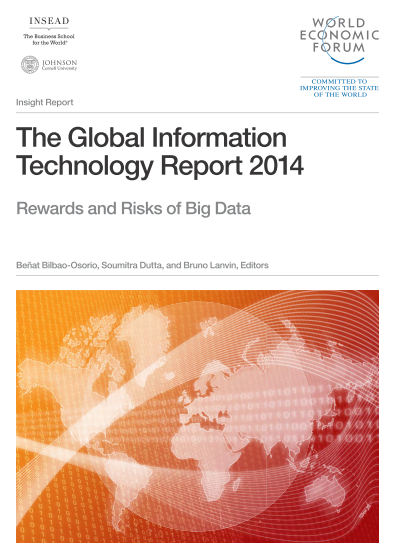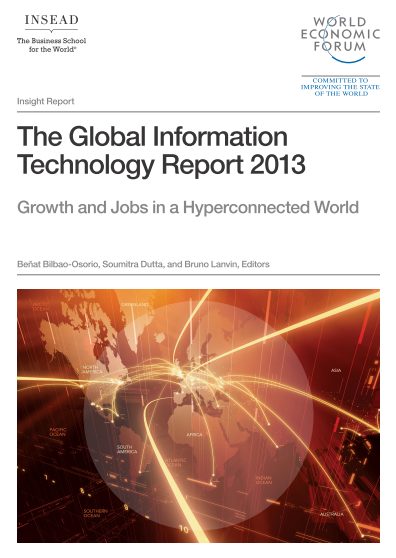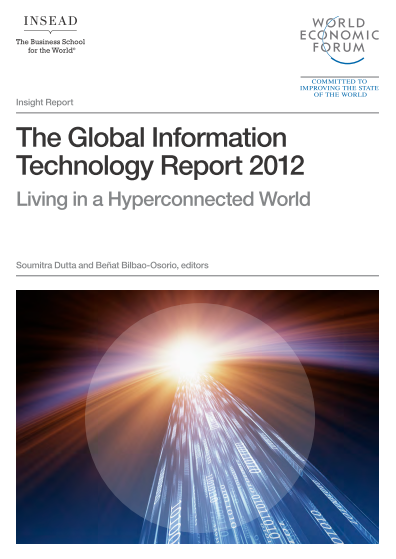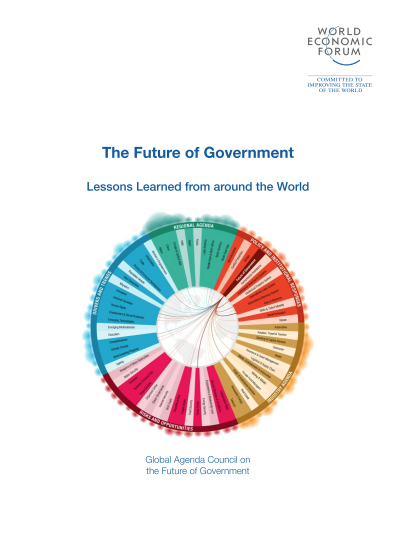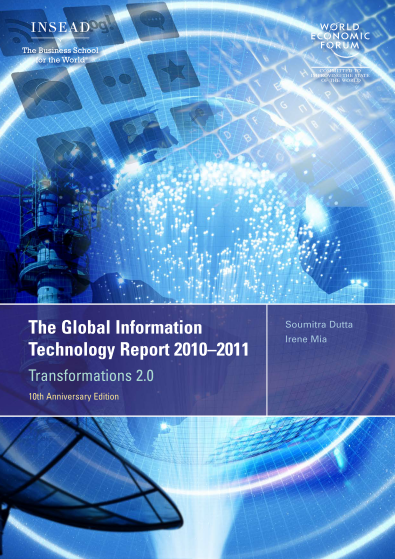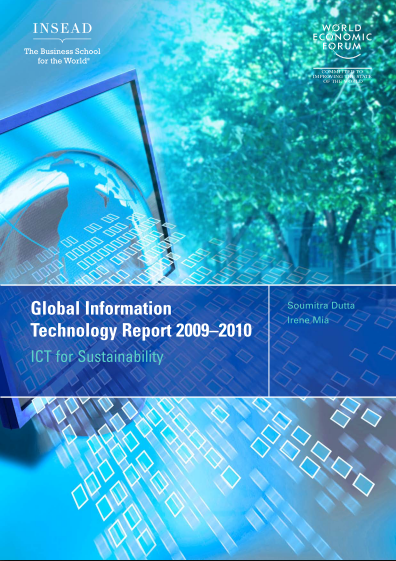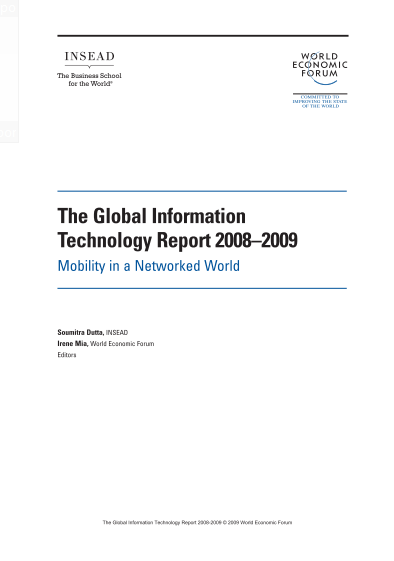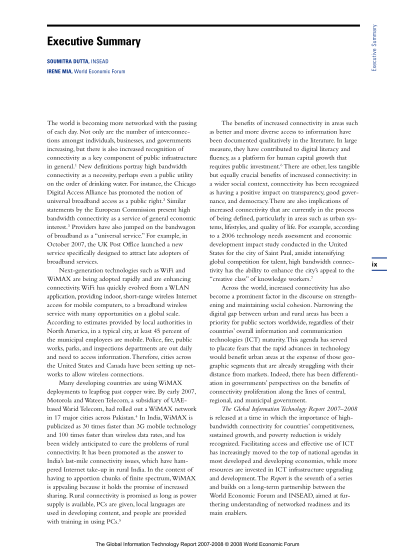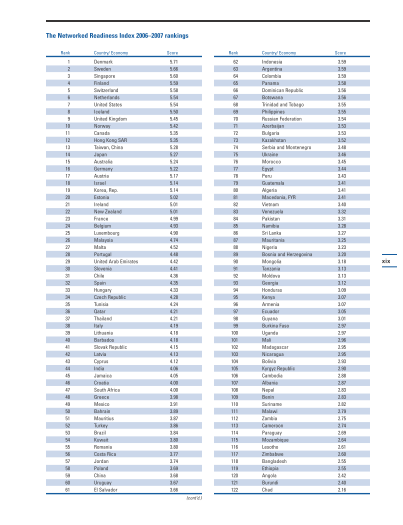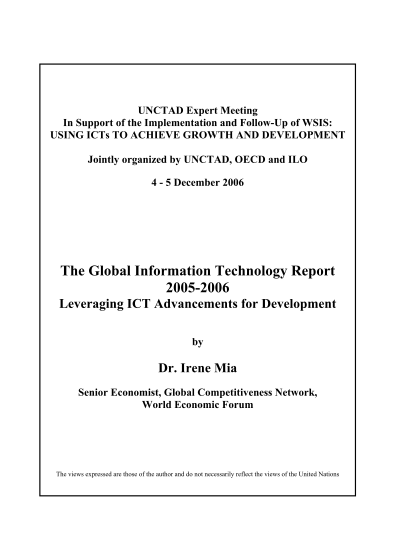WEF e-Devlet Ölçümleme Raporları
HIZLI ERİŞİM
2016: The Global Information Technology Report 2016 - Innovating in the Digital Economy
2015: The Global Information Technology Report 2015 - ICTs for Inclusive Growth
2014: The Global Information Technology Report 2014 - Rewards and Risks of Big Data
2013: The Global Information Technology Report 2013 - Growth and Jobs in a Hyperconnected World
2012: The Global Information Technology Report 2012 - Living in a Hyperconnected World
2011: The Global Information Technology Report 2011 - Lessons Learned from around the World
2010: The Global Information Technology Report 2010 - Transformations 2.0
2009: The Global Information Technology Report 2009 - ICT for Sustainability
2008: The Global Information Technology Report 2008 - Mobility in a Networked World
